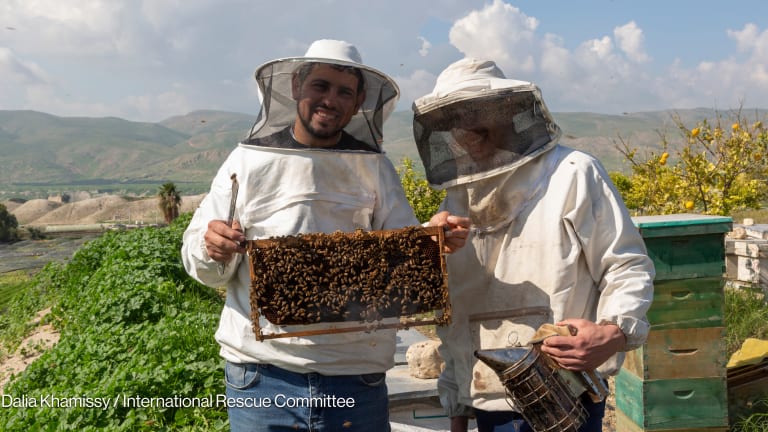
What comes to mind when you think hazards and disasters? Earthquakes, droughts, war?
You might be surprised to know that flooding is the most devastating of environmental hazards across the world. Flood victims constitute the vast majority of people adversely affected by environmental events. Moreover, these are often the poorest, most vulnerable families, living in countries unable — for a variety of reasons such as lack of infrastructure, resources, knowledge — to deal with the devastation.
The sheer scale of this problem is intimidating. The economic losses from earthquakes, tsunamis, cyclones and flooding now reach an average of $250 billion to $300 billion each year, with flooding accounting for 47 percent of all weather related hazards.
In order to tackle what seem to be an insurmountable, unsolvable problem, the Global Resilience Partnership is advocating for a new approach to how we fund and implement aid and development, particularly in relation to disaster response.
Historically, the world has responded to hazards and disasters with emergency relief or humanitarian aid packages. In the last 20 years — during which flooding has affected 2.3 billion people — nearly 87 percent of spending on aid went into emergency response, reconstruction and rehabilitation. Just 13 percent went toward reducing and managing the risks.
We need to ask ourselves, is this is the correct approach? By focusing humanitarian aid on the aftermath of a problem, rather than the actual cause, trying to patch communities back together, are we leaving people equally vulnerable to reoccurring threats? We need long-term, sustainable solutions, not Band-Aids.
There will always be an important case for humanitarian aid, but we need to take another look at allocating resources to proactive planning. Otherwise, by concentrating our energy and funding at the emergency end we stunt communities’ capacity to understand why the problem has occurred, to plan, and to manage their own response and systems to mitigate some of these hazards – or at least manage the devastation that results from them. Placing a bigger focus on resilience builds a systemic solution which will have a tangible, long-lasting impact on communities.
We cannot do it alone. The recent Overseas Development Institute report “Time to let go” sets out that “humanitarian architecture and tools are increasingly being called into question as the right way to address the multifaceted needs in many of today’s emergencies.” And we agree. Too often in the development industry we find ourselves competing with each other. As an industry we need to take a collaborative approach so that we can achieve a critical mass which will have real impact.
How will we know when we have succeeded? Weather related hazards will continue to occur, and, due to climate change, with increased frequency. We have a clear and present danger in front of us. We need to move away from the old funding models and into a contemporary vision which builds local capacity and strengthens local economies. When we can measure the impact of every dollar spent and how it has helped a community manage future risks, we will better understand where and how to invest in order to build sustainable and resilient communities.
Once we understand where we can build up resilience our next step is to decide who is best to lead this work, how we tackle it, and who should be part of the debate. The Global Resilience Partnership is committed to convening this debate to find solutions. In this way we are certain to save more lives and create more opportunities for future growth.
This article first appeared on the Global Resilience Partnership website.
#WaterWindow is an online conversation to amplify the discussion on flood resilience. Devex, together with its partners the Global Resilience Partnership and Zurich Insurance Group, aims to shine a light on innovative solutions to tackle the issues faced by communities worldwide. Join us.








